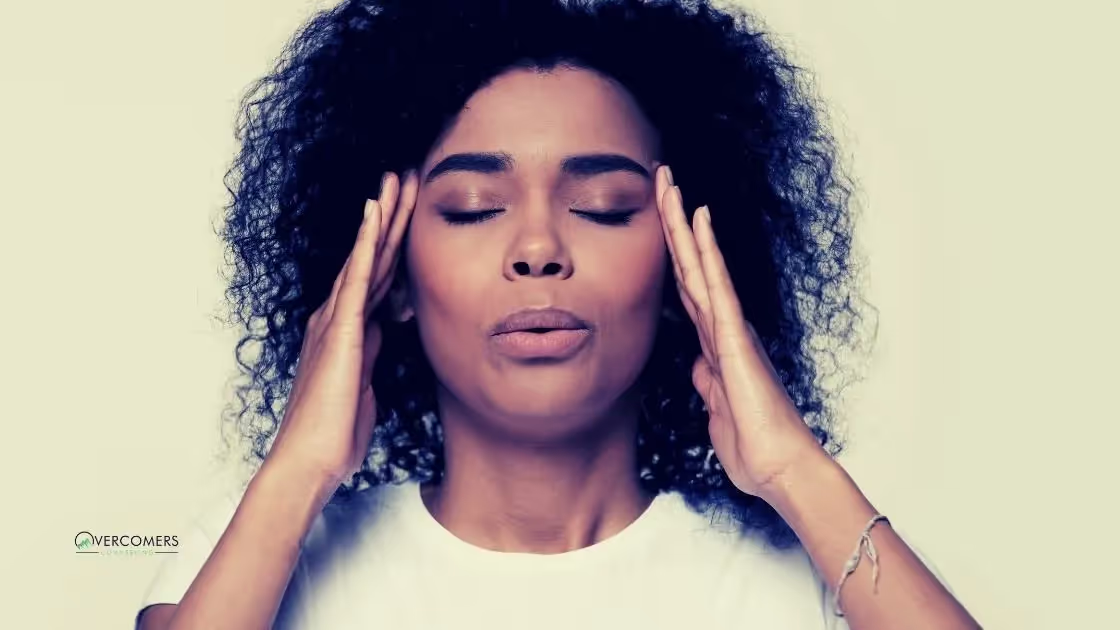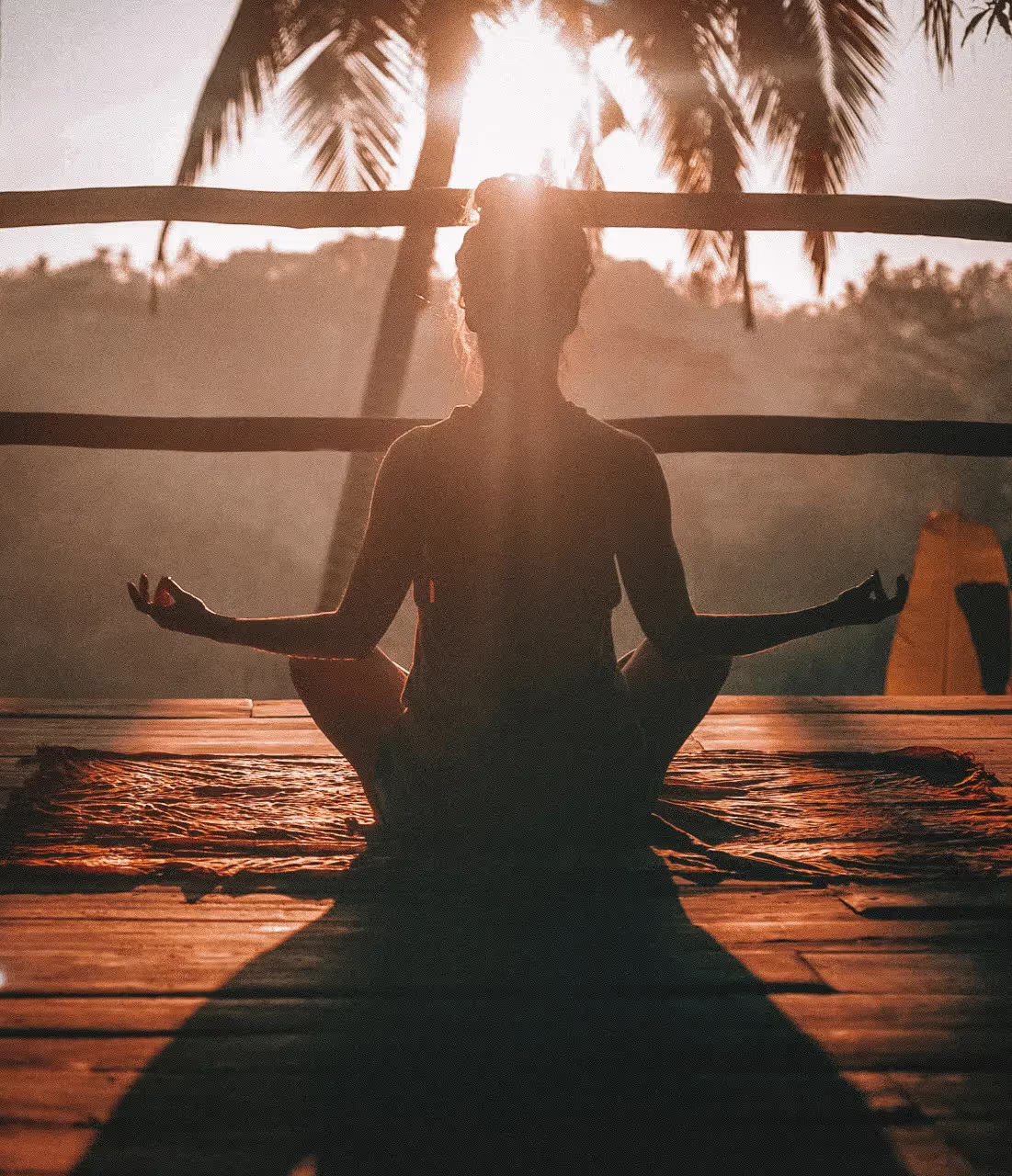Have you ever needed to know how to calm anxiety naturally? Medications are not for everyone. Additionally, most drugs don't offer relief right away.The...

Have you ever needed to know how to calm anxiety naturally?
Medications are not for everyone. Additionally, most drugs don't offer relief right away.
The focus of holistic approaches to mental health issues, such as anxiety, has recently received much attention.
Anxiety is common.
Anxiety disorders are the most common mental health issue affecting 40 million adults in the United States annually.
It can strike at the least expecting moment.
A panic attack could hit as you drive down the freeway, forcing you to pull over to the side of the road.
You might have been cut off by a truck or argued with your husband just before leaving the house.
In either case, you need a natural way to relieve anxiety symptoms.
Let's look at some natural ways to calm your anxiety.
An excellent way to focus on the present is through meditation. Stop your racing mind and fears and try to be in the moment.
Numerous cultures worldwide have used deep breathing exercises for a very long time to calm the mind.
Your body and mind are quiet and relaxed when you are in a proper state of meditation.
Meditation has positive effects on the mind and the body.
Try some guided meditations on YouTube if you're new to meditation.
You will eventually reach a point where you can close your eyes, take a few deep breaths, and bring the panic attack down.

While exercising may seem daunting for many people, it is one way to naturally calm anxiety that works.
When you exercise, your heart rate increases which also increases the number of chemicals in the brain that helps to reduce anxiety.
Additionally, stress and anxiety greatly influence an overactive fight or flight response.
You can manage this fight-or-flight response through exercise. You can exercise in a variety of ways besides just walking, running, and lifting weights.
Dance, martial arts, and even yoga are forms of exercise that can help you manage your anxiety if going to the gym is not for you.
You can also benefit from a walk outdoors.
Music can evoke deep physical responses.
Playing music that makes you feel good or that you can relate to help reduce feelings of anxiety is a key component of music therapy.
Ancient people were aware of the healing powers of music, and those benefits still hold true today.
A guitar's sweet song can cause waves of relaxation to wash over you. The benefits of art therapy are similar.
People who make art reveal hidden emotions they might not even be aware of.
Writing in a journal can have a similar effect—letting things out on paper rather than in your head can significantly reduce anxiety.
So, if you are wondering how to calm anxiety naturally, try using your creative side and making some music or art.

Aromatherapy uses scents to improve your mood.
A study in 2020 found that various essential oils dramatically reduced anxiety, especially lavender.
The aromas in oils stimulate the hypothalamus, a brain region that —along with the amygdala—is crucial for anxiety and stress responses.
For instance, the smell of lavender can relax or stimulate the parts of the brain that control the fight-or-flight response.
In addition, using essential oils in aromatherapy can help to calm racing thoughts, which are an unwelcome aspect of anxiety.
Some other essential oils to try to ease anxiety symptoms include:
For best results with essential oils, please pick up an aromatherapy home diffuser and place it in a bedroom or other room where you spend most of your time.
Experiment with more than one because what works for some people may not work for others, and you may find one that reduces anxiety and lifts your mood.
Fishing is good physical exercise and has the bonus of being in a green environment.
Fishing can decrease your stress levels and improve concentration, which will help to battle your anxiety.
In addition, being outside in nature is beneficial to your mental health.
Something about the birds chirping and frogs singing while you're angling calms anxiety immensely.
If fishing is not your thing, consider going on a nature hike or taking a leisurely drive with the windows down.
Both activities can significantly lift your spirits. Additionally, you can lessen anxiety symptoms with natural lighting.
If you catch your anxiety levels rising often, it could be that you are spending too much time indoors.
A therapist can help you learn ways to calm down anxiety without using medications.
There are many different methods of therapy that a counselor can try to teach you how to reduce anxiety levels.
For example, they can help you practice tools such as mindfulness and learn ways to change negative thought patterns that lead to anxious feelings.
You can also ask your therapist for some other ways to alleviate anxiety naturally, and they can offer you other suggestions for you to try.
If you are wondering how to calm anxiety naturally, try one of the ways listed here.
Not every individual is going to benefit from the same methods.
Try something else if one way doesn't seem to work for you.
You don't have to rely on just medicine to curb your anxiety. Instead, find a natural remedy that works for you and incorporate it into your lifestyle as needed.
You may find that using three methods helps control your anxiety levels.
A therapist is also a natural way to curb anxiety.
For example, cognitive behavioral therapy (CBT) works by adjusting your thoughts, feelings, and behaviors that may lead to your anxiety symptoms.
A combination of treatment and one or two of these natural remedies can help you learn how to calm anxiety naturally without the need for medications.
To reduce your anxiety, you can practice relaxation techniques such as deep breathing, progressive muscle relaxation, guided imagery, and mindfulness practices. Additionally, regular exercise has been found to be beneficial in managing stress and improving mental health.
It's important that you feel comfortable discussing personal matters with your therapist in order to open up and get more out of therapy sessions; therefore finding someone who meets certain criteria like experience level, expertise areas, and personality is key when selecting a therapist who can give meaningful feedback about how best handle issues related to anxiety or other mental health concerns.
Yes, Medicaid provides insurance coverage for therapy services specifically designed to help individuals struggling with anxiety, depression, and other mental health conditions.
The duration of anxiety counseling varies for each individual, depending on the severity of their anxiety and their progress in therapy. Our therapists will regularly assess your progress and adjust your treatment plan as needed.
Addressing anxiety is crucial because it can significantly impact your quality of life and overall well-being. Left untreated, anxiety can lead to more severe mental health issues, relationship problems, and difficulty functioning in daily life.
Other activities which have been found helpful in reducing both immediate feelings of anxiousness and long-term anxieties associated with chronic disorders include yoga, journaling, nature walks, art therapy, volunteering, and other low-stress activities. Additionally, developing a healthy lifestyle incorporating adequate sleep, physical activity, and nutritious meals can help reduce overall stress levels.